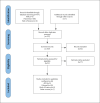Memory Impairing Effect of Propranolol on Consolidation and Reconsolidation for Various Learning Tasks
- PMID: 37645086
- PMCID: PMC10461772
- DOI: 10.29399/npa.28203
Memory Impairing Effect of Propranolol on Consolidation and Reconsolidation for Various Learning Tasks
Abstract
Newly acquired memory traces have been thought to become stable and resistant to interruption after they are stored in long-term memory. However, according to a recent research drugs such as beta-adrenergic receptor antagonists enable memories to be updated and rewritten when administered during consolidation and reconsolidation. Propranolol is a widely used beta-adrenergic receptor antagonist that disrupts the consolidation and reconsolidation processes of memory formation as it inhibits protein synthesis in the central nervous system. This review aims to discuss the memory impairing effect of the systemic and intracerebral administration of propranolol during the consolidation and reconsolidation processes associated with different learning tasks. In doing so, this review will help elucidate the effects of propranolol on different stages of memory formation. Since learning and maladaptive memories underpin some of the most common psychological disorders, such as phobias, post-traumatic stress disorder, addiction, drug-seeking behavior, and so on, a thorough understanding of propranolol's memory-impairing effect has significant clinical value and the potential to help people suffering from these disorders.
Keywords: Memory; consolidation; propranolol; reconsolidation; rodent.
Copyright: © 2023 Turkish Neuropsychiatric Society.
Conflict of interest statement
Conflict of Interest: The authors declared that there is no conflict of interest.
References
-
- Taherian F, Vafaei AA, Vaezi GH, Eskandarian S, Kashef A, Rashidy-Pour A. Propranolol-induced impairment of contextual fear memory reconsolidation in rats:a similar effect on weak and strong recent and remote memories. Basic Clin Neurosci. 2014;5:231–239. https: //www.ncbi.nlm.nih.gov/pmc/articles/PMC4202546/ - PMC - PubMed
-
- Nader K, Schafe GE, Le Doux JE. Fear memories require protein synthesis in the amygdala for reconsolidation after retrieval. Nature. 2000;406:722–726. - PubMed
-
- Dębiec J, Ledoux JE. Disruption of reconsolidation but not consolidation of auditory fear conditioning by noradrenergic blockade in the amygdala. Neuroscience. 2004;129:267–272. - PubMed
Publication types
LinkOut - more resources
Full Text Sources

